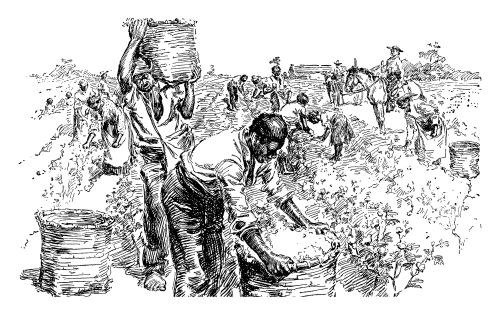Liberty Matters
The Line Between Slavery and Freedom

It has been a joy, for once, to be the least conservative participant in an academic debate.
Rachel Ferguson presents the history of classical liberalism as a liberating force. She, and Brad Birzer, can hardly imagine free market liberalism and slavery as in cooperation. To be fair, neither can I. It seems so plainly obvious that slave labor is not free labor and that western Liberalism played a determining role in bringing about the end of slavery. Yet, from the left-side view, it was precisely market activity that allowed for American slavery to be successful. And in this, the left has a point. The American slave economy had certain features in common with the market economy. After all, there was a market for slaves and for their products. Banks provided slaveholders with loans and insurance. Slaveholders may have made rational calculations about the labor output of their slaves. There was profit to be made.
As horrible as slavery was as an institution, and as immoral as ownership of a person is, slave labor was not wholly distinguishable from many kinds of free labor arrangements including indentured servitude, apprenticeships, child labor, or even the labor of freed Blacks who had little power to negotiate wages. If one could go to the fields of 18th century New York and New Jersey, and look at the labor force, one might have difficulty guessing which laborers were enslaved and which were free. The condition was not always worn on one’s face.
And yet, in principle, slavery and capitalism could not be further from each other. As a metaphysical condition, slavery is the rejection of self-ownership, the very first principle of most theories of capitalism. While the battle over slavery was shaped by economics and waged in politics and war, it was ultimately fought in the minds of Americans who could not reconcile the principles of self-ownership and freedom with enslavement.
Contrary to the claim by Brad Birzer, there is indeed plenty of evidence that slave labor was efficient, and there is in fact a long historiography on this topic, with Fogel and Engerman at the center of the debate. However, the strength of the evidence here is in question. We should perhaps ask instead how efficient was slavery in certain places and times, compared to free labor, and for what reasons might it have been efficient? While this debate is still relevant, historians have reached the point of diminishing marginal returns on investigating this topic. Instead of focusing on comparative efficiency of slave labor and free labor, scholars like Gavin Wright have pointed to the importance of slaves as holdable, moveable property, while Christopher Hanes has pointed to the role that turnover costs played in the choice between hiring free labor and buying slave labor. The point is, it was not necessary for slave labor to be efficient for it to be preferable to those who sought laborers.
Copyright and Fair Use Statement
“Liberty Matters” is the copyright of Liberty Fund, Inc. This material is put on line to further the educational goals of Liberty Fund, Inc. These essays and responses may be quoted and otherwise used under “fair use” provisions for educational and academic purposes. To reprint these essays in course booklets requires the prior permission of Liberty Fund, Inc. Please contact oll@libertyfund.org if you have any questions.